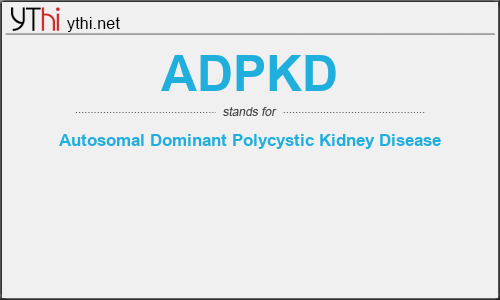What does ADPKD mean? What is the full form of ADPKD?
The full form of ADPKD is Autosomal Dominant Polycystic Kidney Disease. It’s used on Medical ,Diseases & Conditions in Worldwide
Autosomal dominant polycystic kidney disease (ADPKD) is a genetic disorder characterized by the growth of numerous cysts in the kidneys. Symptoms vary in severity and age of onset, but usually develop between the ages of 30 and 40. ADPKD is a progressive disease and symptoms tend to get worse over time. The most common symptoms are kidney cysts, pain in the back and the sides and headaches. Other symptoms include liver and pancreatic cysts, urinary tract infections, abnormal heart valves, high blood pressure, kidney stones, and brain aneurysms. ADPKD is most often caused by changes in the PKD1 and PKD2 genes, and less often by changes in the GANAB and DNAJB11 genes. It is inherited in a dominant pattern. Treatment for ADPKD involves managing the symptoms and slowing disease progression. The most serious complication of ADPKD is kidney disease and kidney failure. ADPKD is the most common inherited disorder of the kidneys
The symptoms and severity of autosomal dominant polycystic kidney disease (ADPKD) vary from person to person. The most common symptoms are formation of kidney cysts, pain in the back and the sides and headaches. These symptoms may get worse over time. Eventually the formation of multiple kidney cysts leads to kidney damage and kidney failure
People with ADPKD may also experience the following complications:
- High blood pressure
- Urinary tract infections—specifically in the kidney cysts
- Blood in the urine (hematuria)
- Liver and pancreatic cysts
- Abnormal heart valves
- Kidney stones
- Brain aneurysm
ADPKD
means
Autosomal Dominant Polycystic Kidney Disease![]()
Translate Autosomal Dominant Polycystic Kidney Disease to other language.


Leave a Reply
You must be logged in to post a comment.